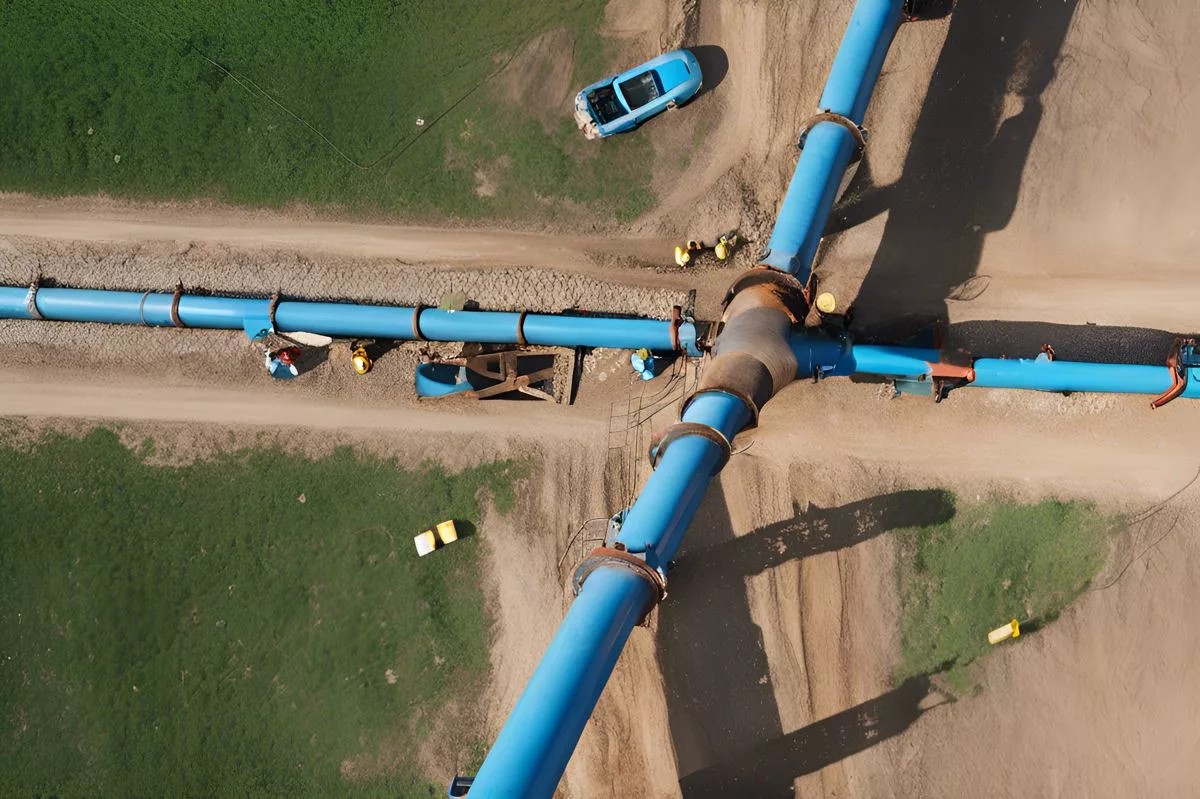South Africa’s trucking industry faces a looming shutdown as the All Truck Drivers Forum and Allied SA (ATDF-ASA) announced a shutdown planned for May 20, 2024. This is due to the ongoing conflict over hiring foreign truck drivers, which has resulted in national shutdowns, protests, casualties, damage to trucks, and loss of goods. The impact of the protests has extended beyond the industry, severely affecting the South African economy and public safety. The disruptions have also caused shortages of basic necessities, delays in deliveries, and increased absences among staff members.
The Looming Shutdown
South Africa’s trucking and road freight sector is gearing up for a possible shutdown as the All Truck Drivers Forum and Allied SA (ATDF-ASA) announced a shutdown slated for May 20, 2024. The ongoing conflict over hiring foreign truck drivers has ignited a series of national shutdowns and protests, resulting in casualties, destruction of trucks, and loss of goods while in transit. The consequences of this unrest have spread far beyond the industry itself, impacting the South African economy and its people severely.
The Looming Shutdown
South Africa’s trucking and road freight sector is once again gearing up for a possible shutdown. The All Truck Drivers Forum and Allied SA (ATDF-ASA) have recently issued an announcement indicating the likelihood of a shutdown slated for May 20, 2024. The logistics sector, in turn, anxiously anticipates the possibility of the shutdown commencing over the weekend of May 17th to 19th. This upcoming event emerges as a part of a lengthy six-year period of continuous unrest and violence that the industry has been grappling with since 2018.
The root cause of this ongoing conflict is the contentious issue of hiring foreign truck drivers. The ATDF-ASA has persistently voiced their concerns, arguing that numerous trucking firms within South Africa are exploiting these foreign drivers by hiring them at lower wages, thereby increasing profits while leaving South African drivers unemployed. This alleged injustice has ignited a series of national shutdowns and protests over the years, with thousands of truck drivers associated with the ATDF-ASA taking an active part from 2018 to 2023.
The protests, typically reaching a peak between March and June each year, have been characterized by the destruction of trucks, instances of assault, and even murders of drivers, particularly those originating from foreign countries. Key transit routes linking harbours to Johannesburg have been obstructed, and the focal point of these protests has frequently been in Kwazulu-Natal. Nevertheless, the waves of violence have also extended to Gauteng, Mpumalanga, Limpopo, the Free State, and the Northern Cape.
The Economic Impact
These shutdowns have had deep repercussions for the country’s economy. The fallout includes numerous casualties, the destruction of a myriad of trucks, loss of goods while in transit, and frequent nationwide shortages of basic necessities such as food and petrol. The intense violence in 2019 forced the Freight Solution Forum (PFSF), a representative body for truck owners, to secure an emergency interdict against the ATDF and its members.
Despite six years of discussions, the deadlock within the trucking industry, punctuated by sporadic outbreaks of violence, remains unresolved. The ATDF-ASA remains dissatisfied, leading to ongoing disruptions that raise questions about the industry’s effect on the economy and public safety.
The consequences of this unrest have spread far beyond the industry itself, impacting the South African economy and its people severely. Amongst the most significant fallout is the growing strain on the trucking industry due to issues such as vandalism, poor upkeep, and cable theft that are affecting the railway system. As a result, even a brief disruption in road freight services could result in the loss of billions of Rands in a single day.
Rising Safety Concerns
Worryingly, threats to public safety are escalating. Trucks have been the target of frequent vandalism, arson, and looting. Drivers, particularly those from foreign countries, are at risk of being assaulted and even killed. Public infrastructure, including vehicles, is under threat, with incidents of cars being damaged by stone-throwing reported. Furthermore, protest marches have only intensified an already explosive situation, escalating the danger to public safety.
These disruptions have had a profound operational impact. Essential routes, national highways, and roads in the vicinity of harbours and cities are regularly blocked, hampering the seamless transport of goods. Stranded truck drivers often struggle with shortages of critical supplies, which further exacerbates the crisis. The resulting unavailability of basic services has been equally distressing. Delays in deliveries to manufacturers and retailers have led to shortages of essential items, including food and petrol. Public life has been disrupted, with commuting to workplaces, schools, and hospitals being hindered, leading to increased absences among staff members.
The Implications of Disruptions
The forthcoming disruptions in the Western Cape are expected to affect various routes, including the N1 between Kraaifontein and Cape Town, N2 between Bonteheuwel and Sir Lowry’s Pass, and the N7 between Milnerton and Citrusdal. As the South African trucking industry prepares for another round of shutdowns, the full economic and social implications of this persistent unrest are yet to be fully comprehended.
What is the cause of the planned shutdown in South Africa’s trucking industry?
The planned shutdown is due to the ongoing conflict over hiring foreign truck drivers, which has resulted in national shutdowns, protests, casualties, damage to trucks, and loss of goods.
When is the planned shutdown scheduled to take place?
The shutdown is slated for May 20, 2024.
What has been the impact of the protests on South Africa’s economy and public safety?
The disruptions have caused shortages of basic necessities, delays in deliveries, and increased absences among staff members. They have also severely affected the South African economy and public safety.
What is the Freight Solution Forum (PFSF)?
The Freight Solution Forum (PFSF) is a representative body for truck owners that was forced to secure an emergency interdict against the ATDF and its members due to the intense violence in 2019.
What are the rising safety concerns associated with these protests?
Trucks have been the target of frequent vandalism, arson, and looting. Drivers, particularly those from foreign countries, are at risk of being assaulted and even killed. Public infrastructure, including vehicles, is under threat, with incidents of cars being damaged by stone-throwing reported.
How will the forthcoming disruptions in the Western Cape affect the trucking industry?
The forthcoming disruptions in the Western Cape are expected to affect various routes, including the N1 between Kraaifontein and Cape Town, N2 between Bonteheuwel and Sir Lowry’s Pass, and the N7 between Milnerton and Citrusdal. The full economic and social implications of this persistent unrest are yet to be fully comprehended.












